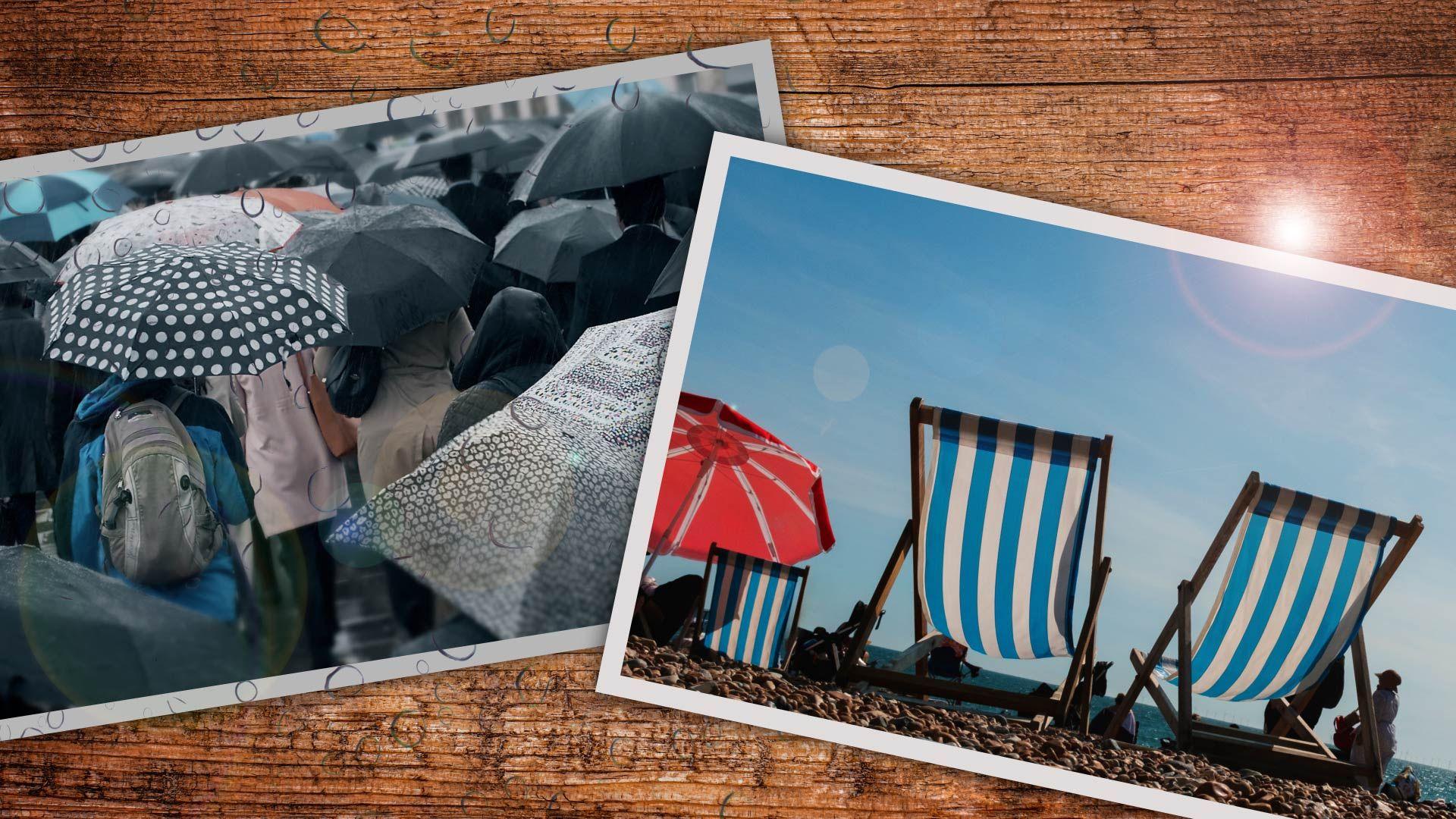UK summer 2024: How was it for you?

- Published
Sorry, but summer is nearly over, at least in meteorological terms. Autumn starts on 1 September as far as weather forecasters are concerned.
So how was summer for you? I鈥檝e been having a look at the numbers so far and of course the answer is "it depends where you live".
Parts of western Scotland have had their wettest August on record with temperatures below average, while in eastern England it has been warmer than usual.
So our perception of summer is shaped by where you are but also by a bit by what you expect it "should" be like.
Mixed summer weather
June started off on a cool and wet note across the UK with some complaining about having to put their heating on. We did get some hotter days towards the end of the month but overall it was cooler than average.
The slow start to summer continued into the beginning of July which was wet. Some counties in southern and north-east England had their monthly average rainfall in the first half of the month.
Warmer weather at the end of July meant that overall, across the UK it was pretty much average in terms of temperature.
It was through August where we saw the biggest contrasts in the weather.
Eastern and south-eastern areas of England was generally dry and warm with temperatures around two Celsius above average.
The highest temperature recorded was 34.8C at Cambridge on 12 August.
There was also an official heatwave, with four days above the heatwave threshold temperature in some southern locations.
Further north and west however, it was duller, cooler and wetter.
Parts of western Scotland have had one of their wettest summers on record.
For Achnagart, Highland it has been the wettest with more rainfall than the previous record of 727.4mm set in 2017.
Conversely, some parts of the Midlands and eastern England had a drier summer than normal.
So when looking at the whole UK, rainfall comes in at just below average.
Parts of western Scotland have had their wettest August on record
Summer feels
Your experience of the weather throughout summer will clearly vary widely on where you live.
People have told me the weather has been both "rubbish" and "pretty decent".
From the statistics, you can probably guess where those people live.
However, even if the weather appeared to be below par where you are, away from the very wet western Scotland, it was a pretty typical British summer.
We had some brief "heat spikes" between spells of unsettled weather with rain at times.
My 成人快手 Weather colleague Darren Bett told me he has noticed over his many years of presenting the national forecast that it used to be the case that we needed three or four days of dry weather to lift the temperature to 30C.
But now it seems more common for heat to build much more quickly.
Perhaps our idea of what a typical British summer is may be changing.
Socio-Meteorologist Helen Roberts told 成人快手 Weather that with human biases we tend to get used to extremes and then expect more of the same.
She said: "We notice and focus on the exceptions and extremes, as well as those rose-tinted glasses of our childhood, meaning we selectively remember warm, sunny days outside in the summer holidays, rather than the less fun grey, drizzly days when stuck inside."
We are therefore tricking ourselves to believe summers in the past have been warmer and "better" in the past when in reality they were not really.
Since 1960 the highest recorded temperature each year has been trending upwards
How is climate change affecting summer?
In 2023, summer was wet but warm, especially in June which ended up being the warmest on record.
The year before, frequent heatwaves in summer 2022 meant it was the joint warmest on record for England with numerous temperature records being broken by considerable margins.
It was also the year when the UK's highest recorded temperature of 40.3C was set.
According to the Met Office, the number of very hot days when the temperature exceeds 30C have more than trebled in the most recent decade compared to the 1961-1990 average.
Summer heatwaves are becoming more frequent, longer and hotter.
Maximum temperatures recorded every year since the 1960s have also been getting higher.
In the 1960s one temperature above 34C was observed. In the 1990s there were two occurrences above 34C. Since 2010 there have been eight years where the highest temperature in the year exceeded that mark.
Our summers are therefore getting warmer so on occasions like this year when we have not had a particularly high temperature or heatwave, do we feel short-changed?
Climatologists agree that UK summers will become hotter and drier on average even though there will be more intense downpours.
Ms Roberts says, "We will perceive hot, dry weather as less extreme and come to expect more."
As for the weather going into autumn, it actually looks like it will be quite warm for some of us.
On Sunday, the first day of meteorological autumn, temperatures could reach 28C in south-east England.
Elsewhere temperatures should be higher than average, even as we go into the week ahead.
It will be a little mixed though with some showers or longer spells of rain at times.
- Published9 hours ago